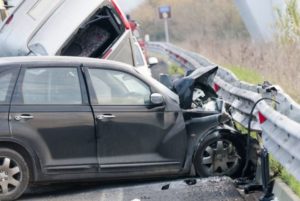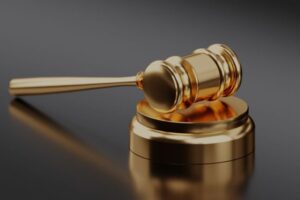
Accidents are traumatic events, physically, emotionally, and financially. They may happen anytime and leave behind a scar that may take years to recover, and in some unfortunate cases, may never recover at all. So, what do you do when you’re involved in a car accident, and you are not at fault?
After the obvious step of receiving medical assistance, the next advised approach is to consult a car accident lawyer. Legal advice is essential to determine how you are going to proceed with the compensation you are liable for.
Before we look at ways to establish liability in car accident cases, it is important to know the type of car accidents. Your role and the role of the party you are filing an appeal against become a lot clearer when the lawyers or insurance agents understand the type of accident.
Car accidents are classified into the following categories
- Rear-end collisions
- Intersection accidents
- Damage caused to parked cars
- Rollover collisions
- Pedestrian accidents
- Hit and runs
Rear-end Collisions
They are exactly what their name suggests and are pretty common. Rear-end collisions are when a vehicle hits your car from behind.
Intersection Accidents
These are a bit tricky because all parties involved in an accident can claim that the others are at fault. Intersection accidents usually happen due to driver negligence, but other factors such as improper signaling, trying to merge, not yielding to the right of way, absent-minded pedestrians, and runaway animals also exist.
Damage Caused to Parked Cars
This one is similar to being hit from behind. This incident occurs when a moving vehicle bumps into a parked car. In cases like this, it is easy to conclude that the party in the moving car was at fault. But there are exceptions. A car coming into contact with another car that’s blocking the driveway is one. Another one is a driver bumping into a car that is parked in an illegal parking area. Though the argument of visibility is a valid counterargument, the location of the illegal parking area and the reason it was deemed one could be valid points to consider.
Rollover Collisions
Multiple factors come into play in rollover collisions. There are reports that suggest roughly 40% of rollover accidents are caused due to excess speed. The culprits in these collisions are usually SUVs, pickup trucks, and minivans, which are involved due to their taller and narrower build, along with their increased center of gravity. In addition to car shapes and speed, environmental factors can also cause a car to roll over.
Pedestrian Accidents
Pedestrian accidents occur when a vehicle hits a person who is either on the sidewalk or crossing the road or street. Cases like these are usually straightforward, except for a few cases where accidents are caused by distracted pedestrians.
Hit and Runs
Hit-and-runs are accidents where a vehicle collides with a person or another vehicle and then leaves the scene of the accident. Hit and runs are often reported by people unrelated to the driver and victim.
How to Establish Liability
In the event that you or someone you know is involved in a car accident, the next best step after seeking medical assistance is to collect information that will aid you in building a strong case. Here are a few tips one can consider to establish liability in a car accident.
Post-Accident Formalities
Irrespective of whether you were the victim or the person responsible for the accident, it is important to document all the essential information regarding the accident. If you are the victim, this helps make your case stronger. If you were responsible for the accident, reporting it to the authorities may help when it comes to insurance claims.
Describing Your Role
There are usually 2 parties in an accident. The one who caused the accident and the victim. As a victim, it is important to prove that the other party or external factors, like slippery roads, faulty traffic lights, and such, are responsible for the accident. This can be done by getting in touch with the police and documenting all the required information.
Weather Information
This comes in handy when talking to your insurance agent or the concerned authorities about the accident. The most common reasons when it comes to car accidents are reckless driving and driving under the influence of alcohol or drugs. When neither of these are the reason, and another car is not involved, recording weather information at the time of the crash might be useful.
Medical Records
Medical records play a vital role in determining the severity of the injuries caused by accidents. It is advisable to store any type of medical record, like proof of doctor visits and hospital stays, medical statements, and bills to prove your case.
Witness Statements
Seek out people who were at the accident spot and record their statements. This is useful to prove your part in the accident.
Relevant Photographs
This falls under the category of collecting evidence. Taking photographs of the scene of the incident, the damage the car has suffered, and your injuries help make a strong case when appealing for accident compensation.
Most accidents are unavoidable, but some are. When you are involved in one, you need to make use of all the information and tools available at your disposal to prove your case and receive the compensation you deserve. It is best to hire a lawyer if you do not have any legal background. Lawyers are well aware of what they need to do to determine liability and obtain fair compensation for you.





